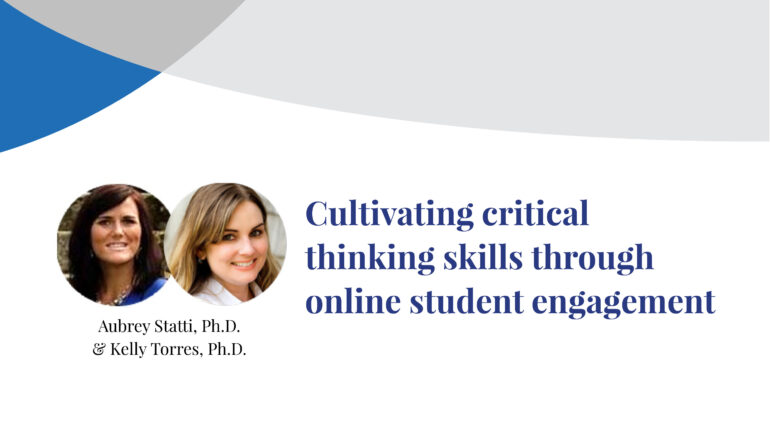In higher education, where the goal is not merely to transfer knowledge but also to cultivate analytical abilities, critical thinking stands out as a vital component. Critical thinking is an important skill for students to find success in education and in professional work settings. Those who lack critical thinking skills will struggle to grasp concepts taught in the classroom, apply psychological theoretical concepts in practice, and evaluate or create work based on their knowledge.
In the classroom, faculty must prioritize critical thinking skills to aid students in dealing with practice problems in the workplace. By embedding critical thinking into course designs, they empower students to navigate complex issues and more deeply engage with course material.
Within the context of professional work settings, employers increasingly value employees with strong critical thinking skills. Individuals who can assess situations, make informed decisions, and solve problems effectively are assets to any organization. Thus, integrating critical thinking in higher education prepares students for the challenges they will face once they embark upon their careers.
Students equipped with robust critical thinking skills are better positioned to grasp complex concepts presented in the classroom and, more importantly, to apply these theoretical frameworks to real-world scenarios. Conversely, students who are lacking in critical thinking skills may struggle not only to comprehend the material presented but also to bridge the gap between theory and practice.
For disciplines such as psychology, in which the application of theoretical concepts is fundamental, critical thinking becomes indispensable.
Specific recommendations for developing critical thinking in online curricula include the following actions:
- Develop a community of inquiry among learners.
- Utilize project-based learning to provide practice experiences.
- Offer thought-provoking discussion prompts and case study assignments.
- Scaffold assignments using Bloom’s taxonomy.
- Encourage the self-sufficiency and autonomy of learners by providing additional resources to support learning.
- Include accessible and inclusive learning practices.

